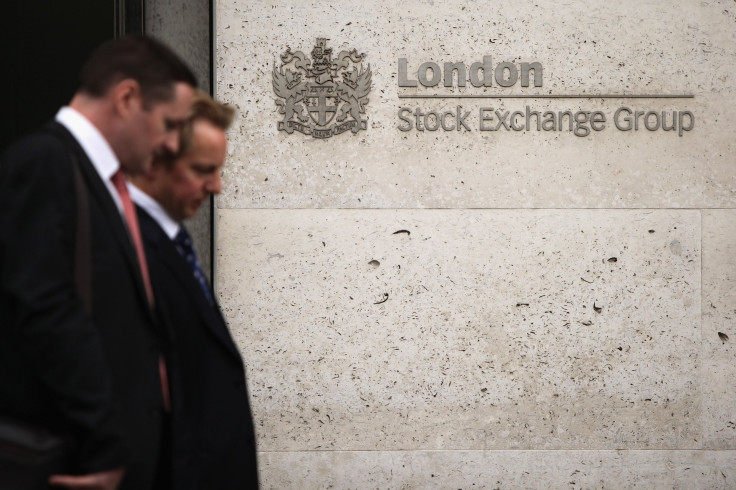NYSE Owner ICE, Deutsche Boerse Vie For London Stock Exchange Acquisition — And It’s Not About Stocks

The marriage of Europe’s two largest financial exchanges seemed all but certain early Tuesday. But the Frankfurt-based Deutsche Boerse and its long-sought target, the London Stock Exchange, were still mulling over a recently announced “potential merger of equals” when the Intercontinental Exchange upended the talks with a surprise entry of its own from across the Atlantic.
Now, with the Chicago-based CME Group also entering the scrum, the global exchange market is back in the spotlight. Whether American or European suitors prevail, the industry looks set for another bout of consolidation as post-crisis regulations continue to increase business opportunities for clearinghouses and swap execution facilities.
And despite the London exchange's legacy as a historic stock trading center, it's its derivatives business that competitors are slavering over, analysts said.
"The big attraction, I think, is [London's swap-clearing facility] LCH.Clearnet and the rates-clearing business," Kevin McPartland, a market structure analyst with Greenwich Associates, said in an email. "Both Deutsche Boerse and ICE could then go up against CME in that arena."
The industry has changed dramatically in the past decade. Twenty years ago, dozens of major exchanges competed for global financial transactions. Today, after successive rounds of mergers and acquisitions, just five companies earn the majority of revenue on trading of stocks, debt and derivative products in developed Western markets.
In the U.S., more than half of that business is split among CME, Nasdaq and ICE, which owns the New York Stock Exchange. In Europe, meanwhile, Deutsche Boerse and the LSE dominate roughly 40 percent of total trading revenue.
Consolidation has been a factor in the industry for years as weaker trading volumes and smaller margins mean exchanges focus less on stock trading and more on higher-growth businesses such as derivatives trading.
That's why London's dominant position in the derivatives business has become central to various parties’ interest in the British exchange. In 2013 the exchange purchased a majority stake in LCH.Clearnet, a facility that clears hundreds of billions of dollars in interest rate swaps and other derivatives on a daily basis. The merger increased the LSE Group's revenue by 50 percent in 2014.
The clearinghouse processed two-thirds of dollar-based interest rate swaps in January, according to the market consulting firm Clarus FT, providing more than 10 percent of the exchange’s total revenue.
The multi-trillion-dollar derivatives clearing industry has morphed following post-crisis financial reforms like the 2010 Dodd-Frank Act in the U.S. New regulations required banks and other operators to clear more of their derivatives contracts at facilities like LCH.Clearnet, which sets aside reserves in case one of the counterparties goes bust.
In other words, regulatory advances made swaps-clearing businesses essential to the flow of financial products around the world, and London has one of the most essential hubs.
The exchange is also active in so-called over-the-counter swaps, which are arranged directly between two parties, which take on all the risks. At the end of 2015, the over-the-counter derivatives market totaled more than $550 trillion in contracts outstanding.
Exchange operators consolidating in that market are “swimming with the regulatory tide,” Steve Grob, director of U.K. financial services adviser Fidessa, wrote of the proposed merger. “This deal helps move the OTC world further into exchange-traded, centrally cleared waters.”
In a combined statement, Deutsche Boerse and the London Stock Exchange said that, in addition to creating by far the largest European financial exchange, a potential merger would offer “significant customer benefits.” The only benefit the statement specifically named: "cross-margining between listed and OTC derivatives clearing."
Merging LCH.Clearnet and Deutsche Boerse, which runs the Eurex clearinghouse, would allow for cross-listing of derivatives among different, currently separate market segments, the companies said. In other words, the merged company would be able to list uncleared derivatives side-by-side with their cleared peers.
“The industrial logic is there in plain sight for investors to see,” Grob wrote of the deal. On top of cost savings, “there is the potential for neat synergies in combining the activities of Eurex Clearing and LCH.Clearnet,” he said.
Similarly, it’s no surprise why London would attractive to ICE. The Atlanta company has striven to corner the market for credit-default swaps, which function as bets on a company’s creditworthiness. These declined in popularity following the implosion of the mortgage market in 2008. London's swaps-clearing business would provide a complement to that business.
The London exchange said Tuesday that it had not received a proposal from ICE.
A London acquisition by the CME Group, meanwhile, would consolidate almost the entirety of the dollar-backed interest rate swap market within one company, likely raising antitrust concerns.
Indeed, the initially proposed London-Deutsche Boerse merger itself would be “subject to regulatory approvals,” the companies wrote in statement.
© Copyright IBTimes 2024. All rights reserved.





















